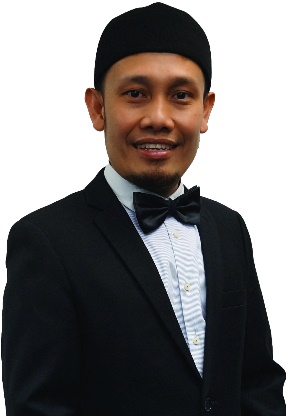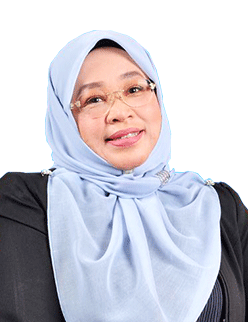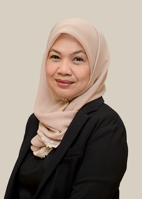| Assoc. Prof. Muhamad Fazil bin AhmadUniversiti Sultan Zainal Abidin, Malaysia Research Area: Broadcasting, Anthropology of Religion, Public Relations, Communication Services, Heritage, Other Religion and Ethics N.e.c. Brief introduction:Assoc. Prof. Dr. Muhamad Fazil Ahmad is a senior lecturer at Universiti Sultan Zainal Abidin (UniSZA) with a corporate communication, public relations, and religious anthropology background. His research interests cover communication services, heritage, and public relations. He has contributed extensively to journals and conferences in persuasive communication, digital media, and Islamic philanthropy. His research also extends to corporate social responsibility and the strategic management of public relations in various sectors Speech Title: Digital Horizons: Shaping Social Development Through Design in the Age of Transformation Abstract:Digital technologies have fundamentally changed the framework for social interaction, information dissemination, and social change initiation. However, the rapid growth of the digital landscape has also brought essential challenges, including accessibility, data privacy, and the digital divide, which can hinder equitable social progress. In this evolving context, the design of digital platforms plays a vital role in shaping social interactions and fostering community resilience. Digital tools that prioritize user-centered design principles encourage participation from marginalized groups, thereby amplifying their voices and perspectives in social discourse. An emphasis on inclusion increases civic engagement and allows for a more equitable distribution of resources and opportunities, ultimately narrowing existing gaps in social development. As society navigates these complexities, viewing the intersection of technology and social development with a critical lens is imperative. By understanding the potential of digital innovations to foster meaningful relationships, researchers and practitioners can strategically apply design principles that promote social cohesion and empowerment. The future of social development depends on our ability to harness this digital landscape effectively, ensure that all people can enjoy the benefits of technology, and promote sustainable and equitable growth. |
| Assoc. Prof. Nor Atiah IsmailUniversiti Putra Malaysia, Malaysia Research Area: Landscape Architecture / Cultural and Heritage Landscape Speech Title: Rural in Character, Urban in Taste: Executing the Spirit and Sensation of Rural Cultural Landscape in Urban Living |
| Assoc. Prof. Roslina IsmailUniversiti Malaya, Malaysia Research Area: Art-Science Convergence, Neurodiverse Creative Interventions, and Contemporary Abstract Art Brief introduction: Associate Prof. Dr. Roslina Ismail, known as Lyne Ismail, is a distinguished visual artist, academic, and researcher specializing in Art-Science Convergence, Neurodiverse Creative Interventions, and Contemporary Abstract Art. Her abstract art reimagines microstructures and biological processes as metaphors for social complexities and personal narratives. Her interdisciplinary research is highlighted in her publication in Leonardo Journal (MIT Press), titled "Object-Oriented Ontology in Shaping Perspectives on Bacterial Art and Non-Human Agency," exploring how non-human actors like bacteria and AI challenge traditional notions of creativity. Her broader inquiry focuses on non-human agency and its societal impact, grounded in Science and Technology Studies (STS). In Cultural Studies, Lyne’s research examines subculture and intangible cultural heritage, including her work on Malaysian female Muslim punks and Islamic aesthetics. She contributes to global discussions on the preservation and reinterpretation of cultural practices through contemporary art. Her RimbaScape Room project addresses neurodiverse mental health, demonstrating art’s transformative potential for social change. Internationally exhibited, including at the Slade School of Fine Arts, Lyne continues to push boundaries in visual culture, technology, and cultural heritage, mentoring emerging scholars and fostering innovation in art and society. Speech Title: Exploring the Cultural and Philosophical Dimensions of AI in Art: Non-Human Agency, Ethics, and Collective Creativity Abstract: This paper investigates the cultural and philosophical dimensions of artificial intelligence (AI) and bacterial art in creative production, examining how these non-human agents challenge traditional ideas of authorship, originality, and agency. Using Object-Oriented Ontology (OOO) as the primary theoretical framework, supported by Posthumanism, this study positions AI and bacteria as active co-creators in artistic processes rather than mere tools for human expression. Through case studies in bacterial and AI-generated art, this research highlights how these entities independently shape artistic outcomes, prompting a re-evaluation of authorship and ethical accountability. OOO provides a lens for understanding the autonomy and agency of AI and bacteria, while Posthumanism expands the ethical discourse around their involvement, urging a move beyond human-centered frameworks. This paper argues that recognizing non-human contributions necessitates new interdisciplinary approaches to creativity and responsibility, advocating for a more inclusive model of cultural production that values both human and non-human influence |



